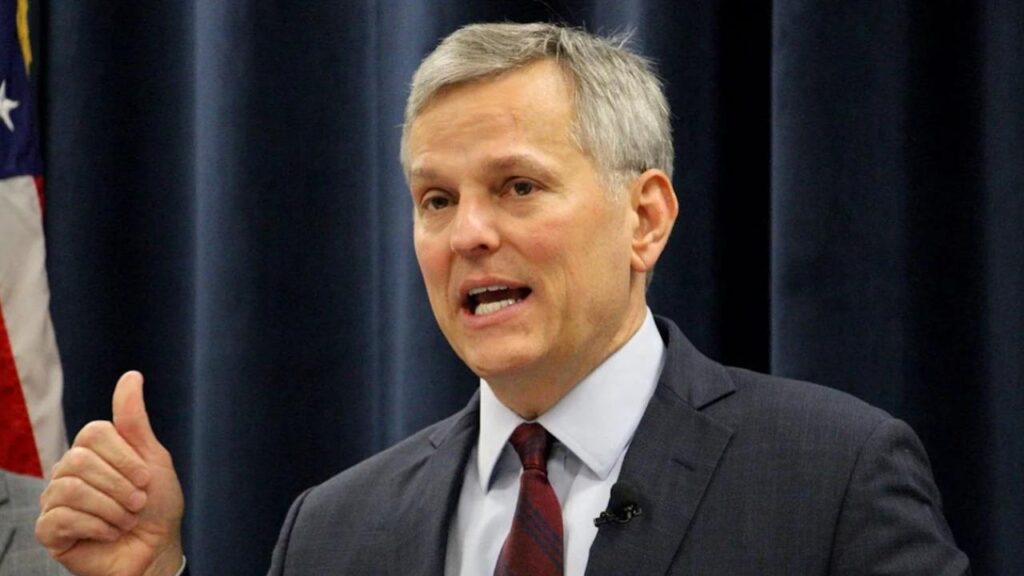North Carolina’s Democratic Governor Josh Stein made headlines on July 3, 2025, by vetoing four controversial Republican-backed bills targeting DEI programs, transgender rights, and educational content. Calling the legislation “mean-spirited,” Stein said the measures would marginalize vulnerable communities and distract from the state’s pressing budget needs. This veto has set the stage for what could be a defining cultural and political showdown in the state.

NC Governor Slams ‘Mean-Spirited’ Anti-DEI Bills
| Key Insight | Detail |
|---|---|
| Main Targets | DEI programs, transgender rights, parental oversight in education |
| Governor’s View | Bills are “mean-spirited” and undermine public services |
| GOP Reaction | Accuses Stein of ignoring parental rights and public opinion |
Governor Stein’s veto is more than a legislative move—it’s a cultural statement. By rejecting the bills, he’s drawn a clear line between governance focused on inclusion and one driven by ideology. Whether the legislature overrides his decision or not, this clash has already ignited a broader reckoning over values, identity, and the future of North Carolina politics.
What the Vetoed Bills Proposed
The vetoed legislation aimed to:
- Eliminate DEI positions in state government (HB 171).
- Scrub DEI initiatives from public K–12 and higher education systems (SB 227, SB 558).
- Restrict transgender rights via amendments in HB 805.
The latter bill was particularly controversial. Originally intended to address online sexual exploitation, it was amended to include provisions barring gender-affirming care for incarcerated individuals and limiting updates to birth certificates for transgender people.
Another bill included a requirement for parental approval on educational materials that might conflict with religious beliefs and introduced mechanisms for removing certain books from school libraries.
Stein: Focus on Pay Raises, Not Culture Wars
In a sharply worded statement, Stein criticized the Republican-led legislature: “At a time when teachers, law enforcement, and state employees need pay raises, the legislature failed to pass a budget and, instead, wants to distract us by stoking culture wars.”
He argued the bills would erode the state’s public institutions and hurt the very people those institutions are meant to serve.
GOP Pushback: A Question of Values
Republican lawmakers swiftly responded:
- House Speaker Destin Hall accused Stein of siding with “radical activists.”
- Senate Leader Phil Berger claimed the governor was out of step with voters “tired of politically correct nonsense.”
While the GOP holds majorities in both chambers, they remain one vote short of a veto-proof supermajority in the House. That vote could make all the difference when lawmakers return later this month.

The National Echo: A DEI Backlash Wave
North Carolina isn’t alone. About a third of U.S. states have introduced or passed legislation rolling back DEI programs in government and education. The movement mirrors broader national trends, many inspired by policy changes during Donald Trump’s presidency.
UNC System schools had already begun scaling back DEI offices as early as 2024. Stein’s veto stops this broader rollback—at least for now.
Why This Could Spark a Culture War
1. Deep Urban-Rural Divide
Cities and colleges generally support DEI principles. Rural communities, by contrast, lean more conservative and often view such initiatives as politically motivated.
2. Transgender Rights Front and Center
HB 805’s late-stage amendments brought the trans rights debate into sharp focus. Issues around birth certificates, healthcare access, and prisoner rights are lightning rods in the culture war.
3. Governance vs. Ideology
Stein is positioning himself as the voice of reason amid political noise. His critique is clear: these bills prioritize ideology over governance.
4. A Public Referendum in Disguise
If Republicans override the veto, it will likely galvanize both sides heading into the 2026 election season. If they don’t, Stein gains momentum as a defender of inclusive values.
What Happens Next
The North Carolina legislature is expected to revisit the bills later in July. An override vote is not guaranteed but remains a possibility.
Meanwhile, advocacy groups like the ACLU of North Carolina are ramping up efforts to influence public opinion and pressure swing votes in the House. Expect this issue to stay hot well into the fall, especially as both parties gear up for midterm campaigning.






